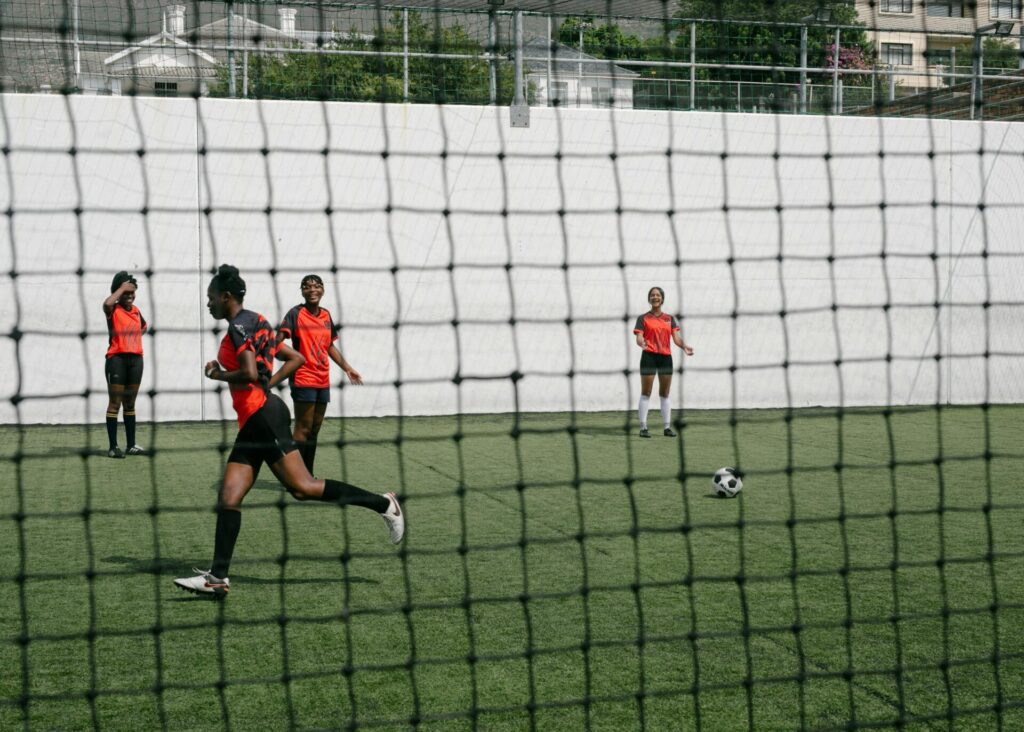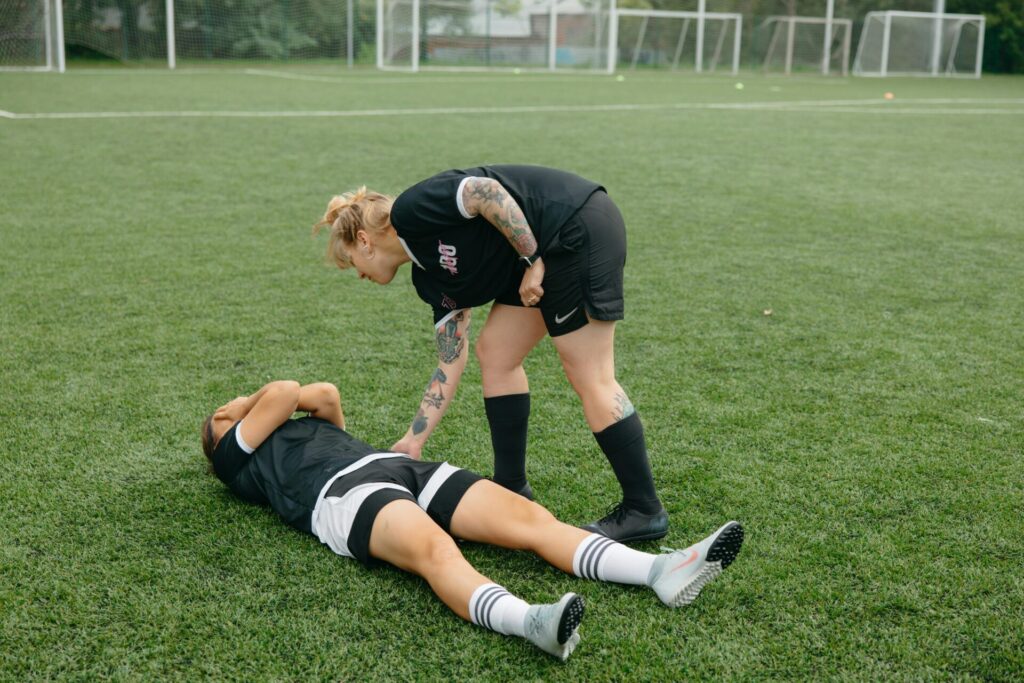
Confronting Pressure from Your Sport Circle
In sport, pressure most commonly comes from our coaches, our parents or guardians, and our teammates and friends. Most of the time, the people pressuring you aren’t trying to make you anxious, and rarely are they even aware of how they’re making you feel.
Dealing with Too Much Pressure from a Coach
Assess the Situation: Before addressing the coach or making a complaint—which could be the right step—pause and consider what’s happening between you and the coach. The coach’s role is to help you improve, so you might be experiencing perceived pressure to perform. But ask yourself: Is the pressure in your mind, or is the coach actively making you feel like you’re not measuring up?
“Good coaches tend to have the right expectations of athletes and clearly explain them,” Chapman says. What are your coach’s expectations for the team? If you’re not meeting those, the coach should guide you to make changes. However, if you feel singled out or unclear about the expectations, then there is an issue.
Handle the Pressure: Ask your coach for a clear set of expectations for the team, ideally at the start of the season. Chapman explains, “You’ll be surprised how much pressure lifts when you have clear expectations to work with.”
Dealing with too much pressure from a parent
- Assess it: Unfortunately, parents often put pressure on their athletes for all the wrong reasons, but with the best of intentions. They want to see you succeed, whether it’s to live out their athletic high school dreams, or because they want you to get that scholarship, or simply because they believe that winning is more important than anything else in life. There are dozens of reasons a parent may mistakenly put pressure on you to perform, says Chapman. And unfortunately, the pressure often backfires and makes you perform worse rather than helping you live up to your potential.
- Handle it: In this case, the recommendation means taking on more responsibility than you should have to, says Chapman. “It can feel like you have to be the adult here, but communicating you already have a lot of pressure to perform is so important to changing your parents’ behavior,” says Chapman. “Explain to them that you feel pressure from social media, from your coach, from your teammates—and you don’t need it from them as well. If you can, lay out for your parents exactly what you want from them. Say, ‘I need you to be supportive, listen, and encourage me.’ Make it clear to them exactly how they can best support you.”
Dealing with too much pressure from a teammate
- Assess it: Teammates can create a huge amount of pressure, whether you’re the top player on the team or you’re the one who’s struggling the most. As one of the top players, you may feel pressure from your peers to win the game for the team, or to ensure that the team makes it to the championships. If you’re having a hard year, maybe due to illness or injury, you may feel like your teammates are frustrated with you and pressuring you to recover faster than is possible for you. Pressure from teammates can also involve peer pressure to take part in things like hazing or partying, or other negative behaviors that you’re not interested in.
- Handle it: First and foremost, if you feel as though you’re being bullied let a coach or administrator know. There’s a difference between unintentional harmful pressure from teammates and bullying behaviors. If the pressure isn’t bullying, then Chapman suggests first talking to your teammates who may not realize how their comments are making you feel. But second, it’s important to do the internal work of remembering who you are in addition to being an athlete. “Remember that you are so many things outside of sport,” he says. “Having a broader perspective on who you are as a person helps insulate you when things don’t go well in a game.”

Coping with Continued Pressure
Develop a New Mantra
To prevent outside pressure from turning into internal stress, Chapman suggests adopting the mantra “progress, not perfection.” Often, the pressure we feel from others can lead to a need for perfection, which is unrealistic. Chapman notes, “Perceived pressure can easily become self-pressure, but if we chisel away at this notion of perfectionism, we can handle those pressures more gracefully. We’re all going to have bad performances, but a bad performance doesn’t mean you’re a bad athlete.”
This mantra can also help you channel pressure positively. Sometimes, comments and criticism that seem like attacks when you’re anxious can actually improve your performance with the right mindset. Chapman explains, “There’s a difference between constructive criticism and unwarranted pressure, but if you’re feeling anxious, it can be hard to tell the difference. If you can separate yourself from the feeling of pressure and focus on what a coach or teammate is saying, you may realize they’re just trying to help you with a specific skill.”

Feeling Too Much Pressure? Seek Support.
Sometimes, people in your life won’t hear what you’re trying to say. Parents may still comment on scholarships, teammates may expect you to be the star player, and coaches may keep unrealistic standards. Coping with pressure often becomes an internal battle. Chapman suggests that not internalizing a parent’s remark about college scouts can be just as effective as having honest conversations.
Look for people in your life who don’t make you feel pressured. This could be certain teammates, assistant coaches, teachers, relatives, or non-sport friends. Build a support system of positive relationships that motivate rather than stress you out.
Seeking help from a school therapist or guidance counselor can also help you manage pressure. If pressure affects your emotional well-being, performance, grades, or sleep, it’s time to seek professional support. Student-athletes have access to many resources, including counseling, so take advantage of them.
Takeaways
As a young athlete, it may seem like pressure comes from all sides. Even if your coach, parents, or teammates don’t intend to pressure you, their comments can still cause stress. A simple conversation can sometimes make a big difference. And if the pressure continues, remember it’s often more about them than you.
References
Reference: Author: Kevin Chapman, True Sport. (May 1st, 2023). Cope with pressure from your sport circle. Retrieved from https://truesport.org/performance-anxiety/cope-pressure-from-sport-circle/


